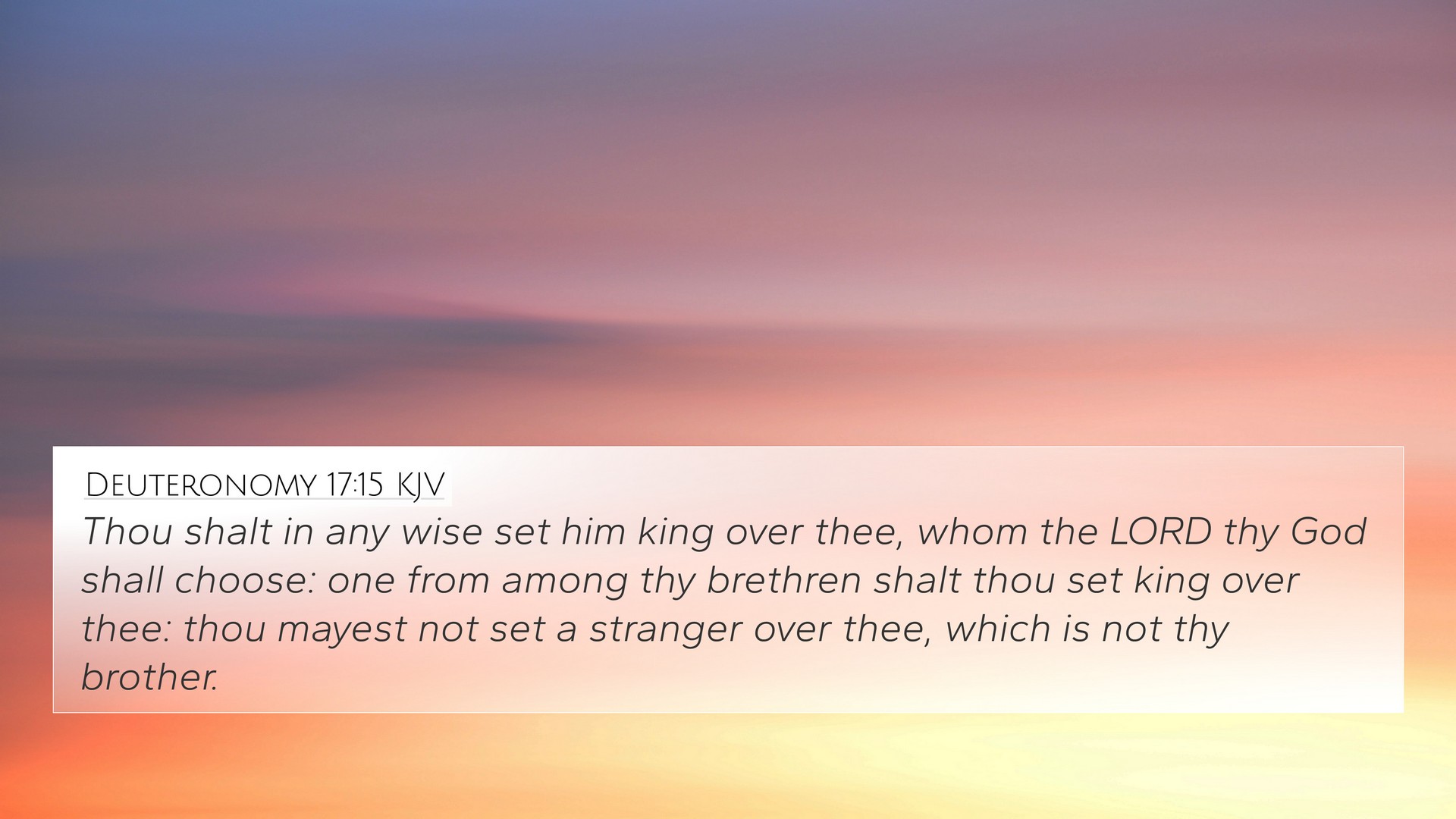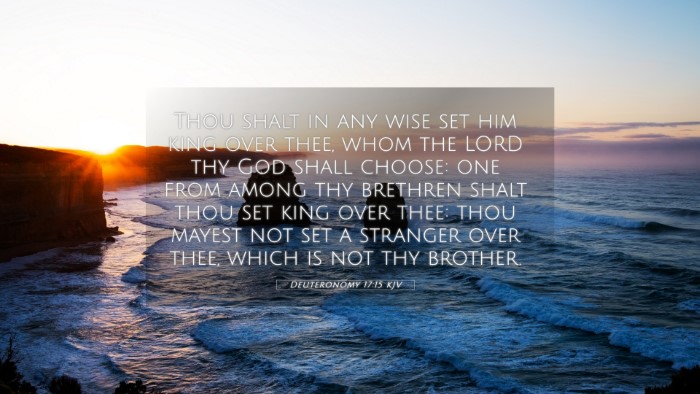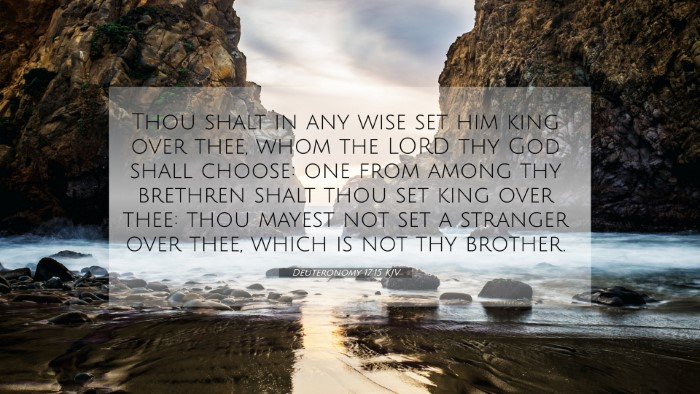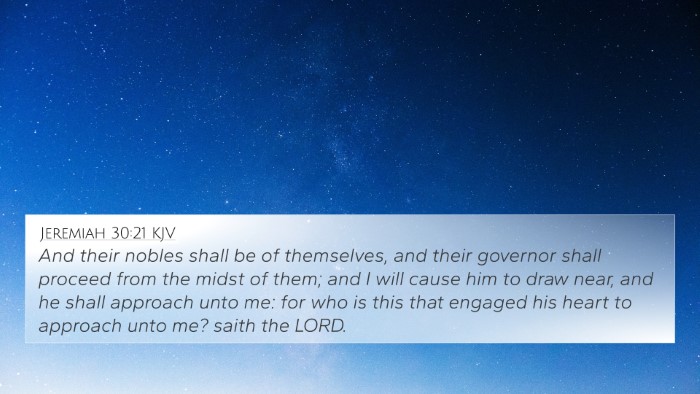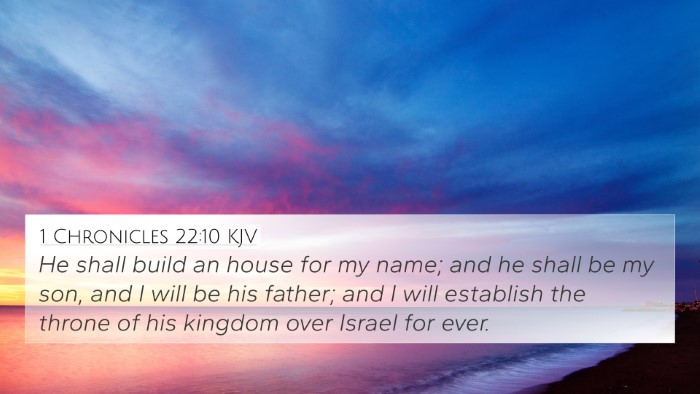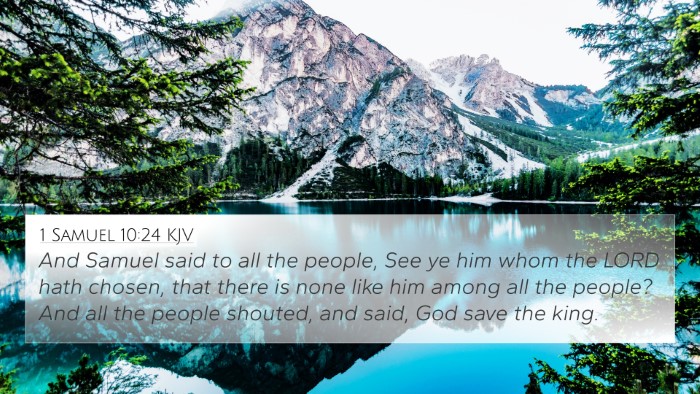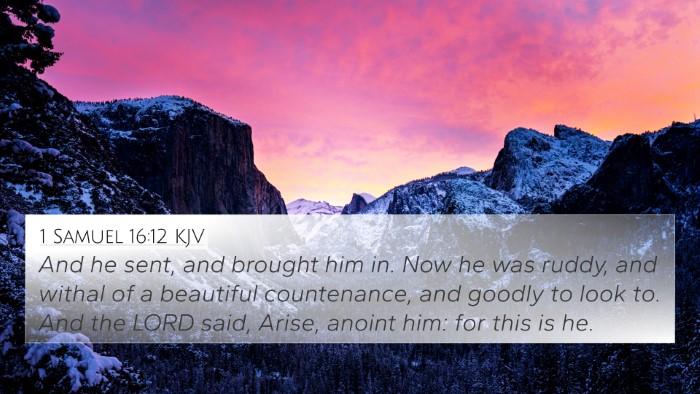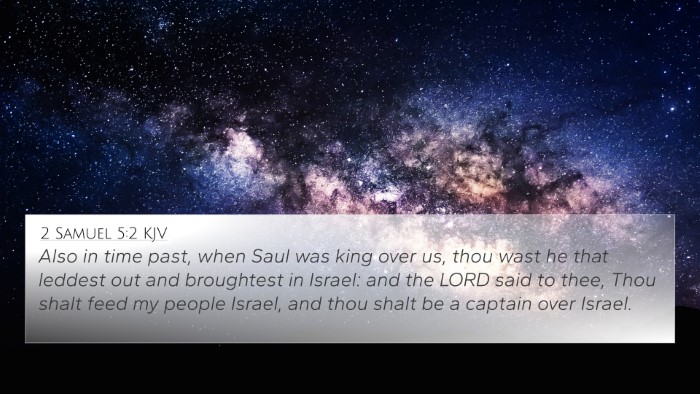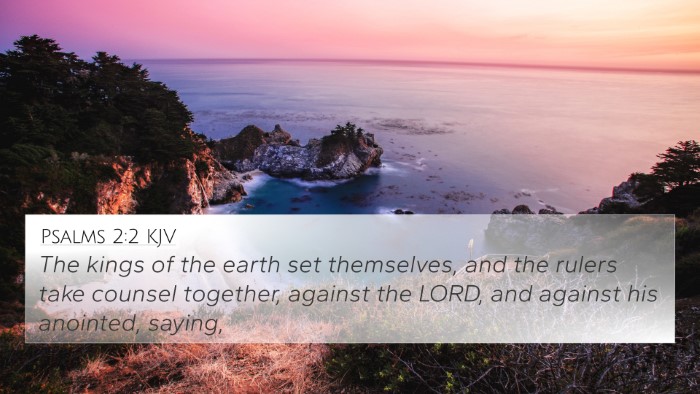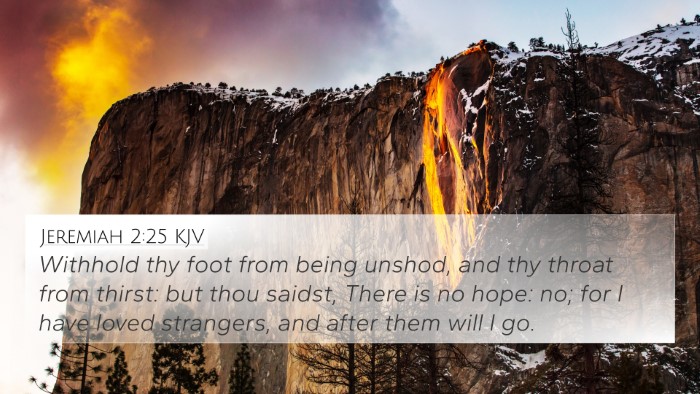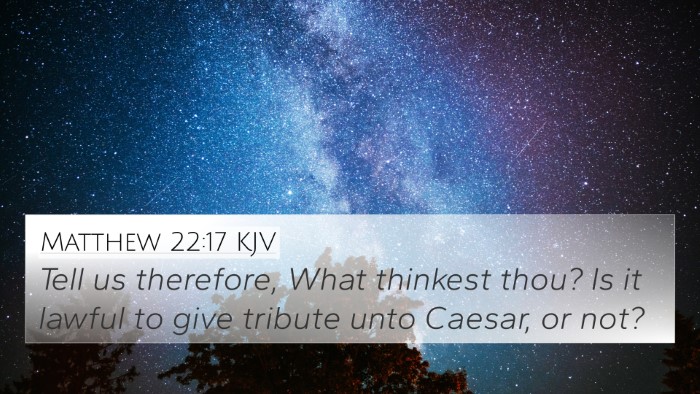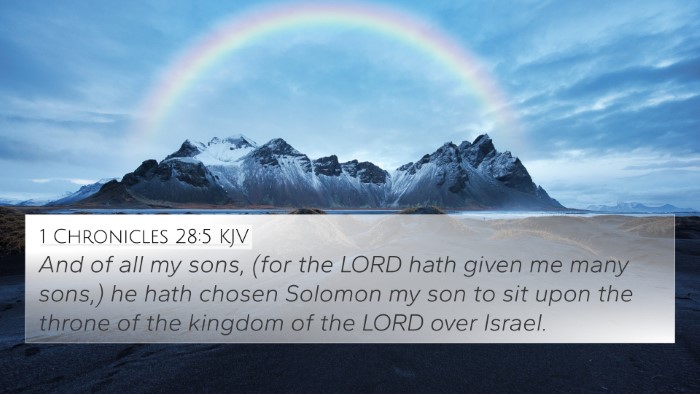Understanding Deuteronomy 17:15
Verse: "Thou shalt in any wise set him king over thee, whom the LORD thy God shall choose: one from among thy brethren shalt thou set king over thee; thou mayest not set a stranger over thee, which is not thy brother."
Summary of Insights
This verse emphasizes the importance of divine selection and kinship in the appointment of a king for Israel. It serves not only as a directive for governance but also reflects theological principles concerning leadership and community.
Detailed Analysis
- Divine Selection: The phrase "whom the LORD thy God shall choose" signifies that leadership in Israel must originate from God's will. This illustrates a belief that true kingship is not merely a human endeavor, but should be aligned with divine authority (Matthew Henry).
- Brotherhood and National Identity: The emphasis on selecting "one from among thy brethren" expresses the need for unity and fraternity in leadership. A leader must share the same heritage and identity as the people (Adam Clarke).
- Prevention of Foreign Rule: The directive against appointing a "stranger" underscores the importance of cultural and national integrity. This serves as a caution against foreign influences that could disrupt the communal and spiritual life of Israel (Albert Barnes).
Bible Verse Cross-References
This verse connects with several other passages that reinforce its themes of kingly selection, national identity, and divine authority:
- 1 Samuel 10:24: "And Samuel said to all the people, See ye him whom the LORD hath chosen, that there is none like him among all the people?"
- 1 Samuel 16:13: "Then Samuel took the horn of oil, and anointed him in the midst of his brethren: and the Spirit of the LORD came upon David from that day forward."
- 2 Chronicles 23:3: "And all the congregation made a covenant with the king in the house of God."
- Proverbs 29:2: "When the righteous are in authority, the people rejoice: but when the wicked beareth rule, the people mourn."
- Jeremiah 30:21: "And their nobles shall be of themselves, and their governor shall proceed from the midst of them; and I will cause him to draw near, and he shall approach unto me."
- Isaiah 1:26: "And I will restore thy judges as at the first, and thy counselors as at the beginning: afterward thou shalt be called, The city of righteousness, the faithful city."
- Ezekiel 34:23-24: "And I will set up one shepherd over them, and he shall feed them, even my servant David; he shall feed them, and he shall be their shepherd."
Theological Implications
This verse not only establishes governance guidelines for Israel but also acts as a prototype for understanding God’s expectations from leaders throughout biblical history. The principles laid out here resonate through various eras and contexts, forming a cohesive framework for spiritual leadership.
Thematic Connections in Scripture
The notion of Godly selection is echoed throughout scripture:
- Matthew 2:6: Referencing "Out of thee shall come a Governor, that shall rule my people Israel," this points to the Messianic qualification of being from among the brethren.
- Hebrews 5:1: "For every high priest taken from among men is ordained for men in things pertaining to God," indicating the necessity of relatable and humane leadership.
- Acts 1:24-26: The apostles seeking God’s choice for leadership after Judas' departure reflects the continued reliance on divine guidance for leadership choices.
Applying Insights for Modern Readers
Understanding this biblical passage offers valuable insights into contemporary leadership discussions, particularly in religious and community contexts. The call for leaders to be chosen with divine guidance and from among the community remains relevant.
